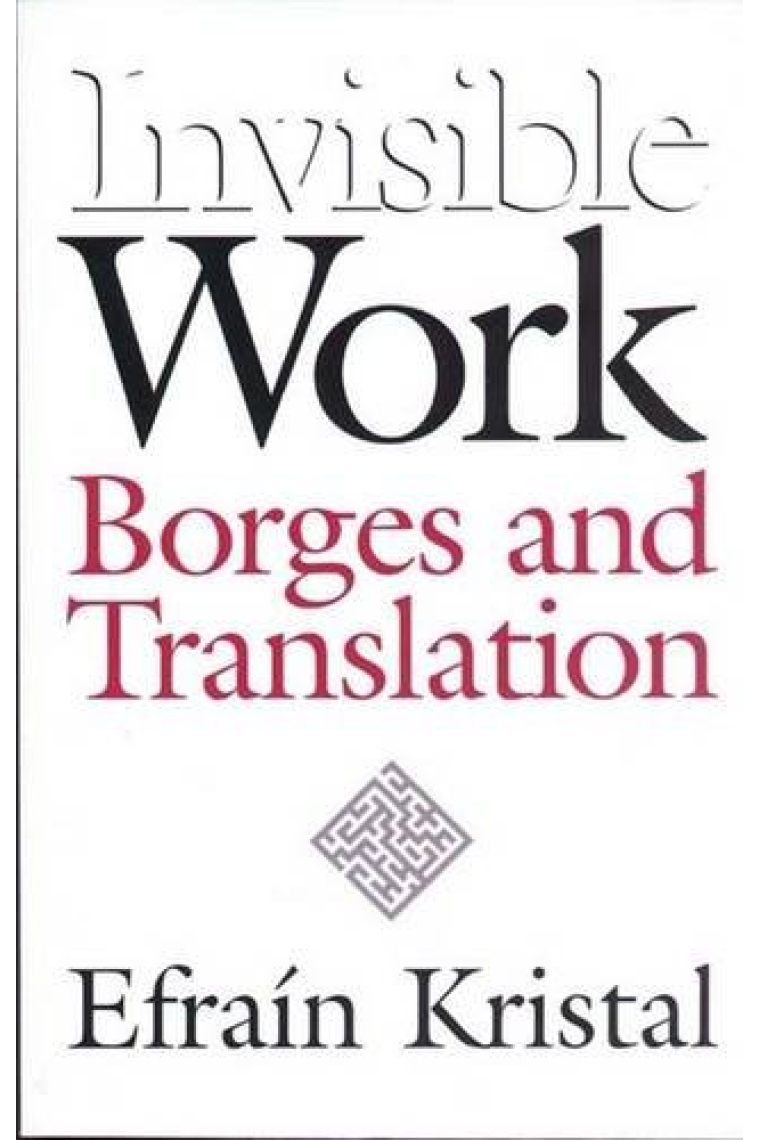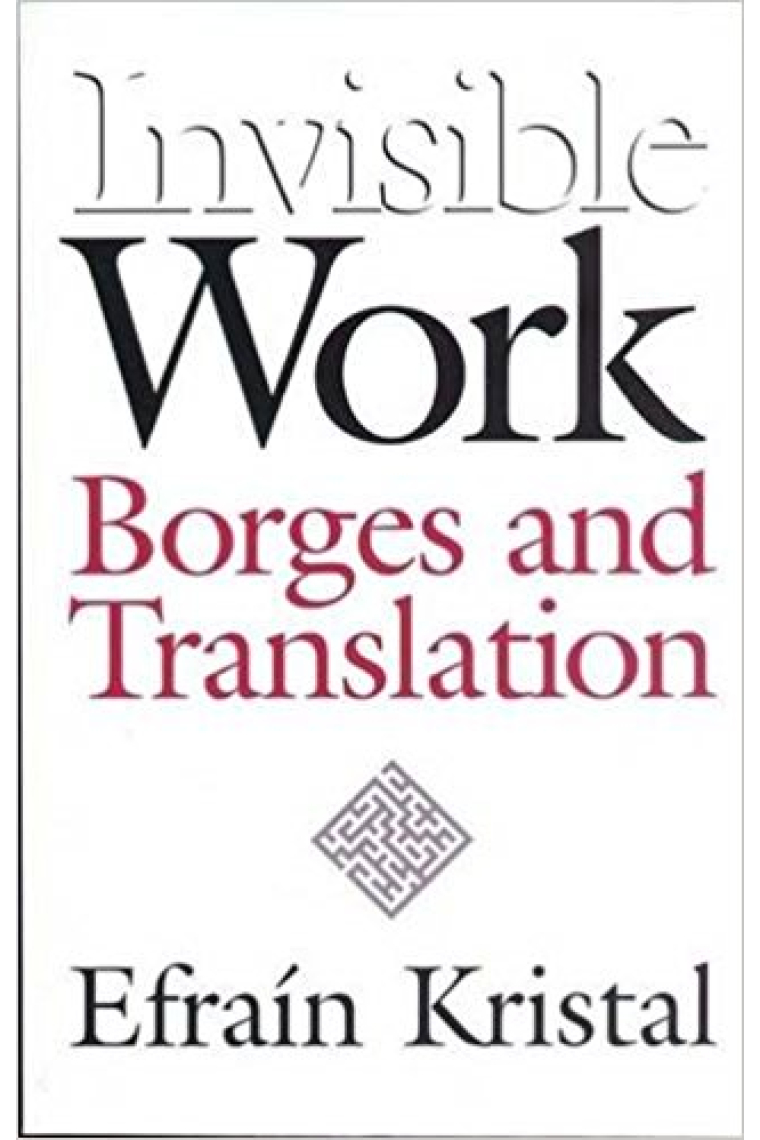Detalles del libro
It is no surprise ... that translation figures large in Borges' poetics, and Kristal does an extraordinary job of tracing this trope throughout the blind writeris long career. --Virginia Quarterly Review Invisible Work: Borges and Translation reveals that behind every tale by Borges there pulses a generative translation. Efrain Kristal has brought to light the extent to which Borges's methods as translator--who habitually changes the titles, excises passages, transforms characters, and develops potentialities--intervene in the conception and execution of his fictions. Borges's strategies as translator and creative writer are one and the same.--Saul Yurkievich While Borges's writings have already generated mountains of commentary, his work as a translator has received little more than a passing nod. Efrain Kristal's close and detailed study of Borges's translations makes dramatically clear how they embody his whole view of writing--that all writing is a form of rewriting, that writers are essentially recreators. His translations are much more than linguistic renderings of an original--they are transformations--and Kristal's scrupulous reading of them shows them to be a fundamental part of the Borges canon. As translator, Borges more than fulfills Octavio Paz's claim: 'Everything we do is translation, and all translations are in a way creations.'--Alastair Reid A must-read for all students, scholars, and hedonic readers of the Argentine fabulist, as well as a groundbreaking expansion of the fields of translation studies and comparative literature.--Suzanne Jill Levine "Invisible Work: Borges and Translation" reveals that behind every tale by Borges there pulses a generative translation. Efrain Kristal has brought to light the extent to which Borges's methods as translator--who habitually changes the titles, excises passages, transforms characters, and develops potentialities--intervene in the conception and execution of his fictions. Borges's strategies as translator and creative writer are one and the same.--Saul Yurkievich
It is well known that Jorge Luis Borges was a translator, but this has been considered a curious minor aspect of his literary achievement. Few have been aware of the number of texts he translated, the importance he attached to this activity, or the extent to which the translated works inform his own stories and poems. Between the age of ten, when he translated Oscar Wilde, and the end of his life, when he prepared a Spanish version of the Prose Edda, Borges transformed the work of Poe, Kafka, Hesse, Kipling, Melville, Gide, Faulkner, Whitman, Woolf, Chesterton, and many others. In a multitude of essays, lectures, and interviews Borges analyzed the versions of others and developed an engaging view about translation. He held that a translation can improve an original, that contradictory renderings of the same work can be equally valid, and that an original can be unfaithful to translation. Borges's bold habits as translator and his views on translation had a decisive impact on his creative process. Translation is also a recurrent motif in Borges's stories. In ""The Immortal,"" for example, a character who has lived for many centuries regains knowledge of poems he had authored, and almost forgotten, by way of modern translations. Many of Borges's fictions include actual or imagined translations, and some of his most important characters are translators. In ""Pierre Menard, author of the Quixote,"" Borges's character is a respected Symbolist poet, but also a translator, and the narrator insists that Menard's masterpiece - his ""invisible work"" - adds unsuspected layers of meaning to Cervantes's Don Quixote. George Steiner cites this short story as ""the most acute, most concentrated commentary anyone has offered on the business of translation."" In an age where many discussions of translation revolve around the dichotomy faithful/unfaithful, this book will surprise and delight even Borges's closest readers and critics.
Ver Descripción del producto- Encuadernación Tapa dura
- Autor/es Kristal, Efraín
- ISBN13 9780826514073
- ISBN10 0826514073
- Páginas 216
- Año de Edición 2002
- Idioma Inglés
Invisible work: Borges and translation
- Efraín Kristal
- Editorial VANDERBILT
- ISBN 9780826514073
 ¡Gracias por comprar en librerías reales!
¡Gracias por comprar en librerías reales!

 Lo mejor de noviembre
Lo mejor de noviembre  Alibri Llibrería, Barcelona
Alibri Llibrería, Barcelona
 Librería Lé, Madrid
Librería Lé, Madrid
 Caselles Llibrería, Lleida
Caselles Llibrería, Lleida









